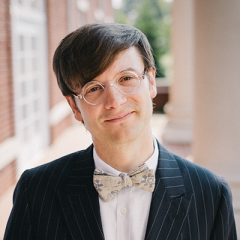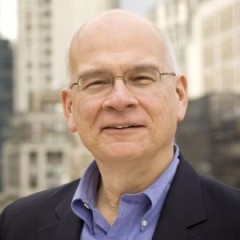When Mark Oppenheimer declared that “evangelicalism is in the midst of a Calvinist revival” in The New York Times earlier this year, he was only partially correct.
According to a 2010 Barna poll, roughly three out of 10 Protestant leaders describe their church as “Calvinist or Reformed,” a proportion statistically unchanged from a decade earlier. According to the research group, “there is no discernible evidence from this research that there is a Reformed shift among U.S. congregation leaders over the last decade.”
And yet, Oppenheimer is correct that something is stirring among American Calvinists (those who adhere to a theological system centering on human sinfulness and God’s sovereignty that stems from 16th century reformer John Calvin). While Calvinist Protestants—including Presbyterians, some Baptists, and the Dutch Reformed—have been a part of the American religious fabric since the beginning, Oppenheimer points to a more vocal and visible strain that has risen to prominence in recent years.

Photo courtesy of Thierry Ehrmann (http://bit.ly/1jNYRlh)
They’ve been called the “young, restless, and reformed” or neo-Calvinists, and they are highly mobilized and increasingly influential. Their books perform well in the marketplace (see John Piper or Paul David Tripp), their leaders pepper the lists of the most popular Christian bloggers (see The Gospel Coalition and Resurgence), and they’ve created vibrant training grounds for raising new recruits (see Reformed Theological Seminary, Westminster Theological Seminary, and The Southern Baptist Theological Seminary).
This brand of Calvinists are a force with which to reckon. But as with any movement, America’s Calvinist revival is a mixed bag. None can deny that many have come to faith as a result of these churches and leaders. The movement is rigorously theological, which is surely one of its greatest contributions. Just as Quakers teach us much about silence, Mennonites teach us much about peace, and Anglicans teach us much about liturgy, so Calvinists spur us on with their intellectual rigor.
And yet, from where I sit, there are several troubling trends that must be addressed if this faithful faction hopes to move from a niche Christian cadre to a sustainable and more mainstream movement.
ISOLATIONISM
One of the markers of the neo-Calvinist movement is isolationism. My Reformed friends consume Calvinist blogs and Calvinist books, attend Calvinist conferences, and join Calvinist churches with Calvinist preachers. They rarely learn from or engage with those outside their tradition. (My feeling is that this trend is less prevalent among leaders than the average followers.)
The most sustainable religious movements, however, are those which are willing to ask hard, full-blooded questions while interacting with more than caricatures of other traditions. When neo-Calvinists insulate and isolate, they hyper-focus on those doctrines their tradition emphasizes and relegate other aspects to the status of afterthought. The Christian faith is meant to be lived and not merely intellectually appropriated. This requires mingling with others who follow Jesus, are rooted in Scripture, and are working toward a restored creation.
Gregory Thornbury, a Calvinist and president of The King’s College in New York City, told me, “I think the ‘young, restless, and reformed” are different than the Dutch stream in that they tend to stay with authors and leaders that they know. It does run the risk of being provincial, but I don’t think it is intentional. There are universes where people stay, and they read the things they know.”

Gregory Alan Thornbury is a Calvinist Christian and president of The King’s College in New York City. He encourages his students to “read promiscuously.” – Photo credit: New Southern Photography
To guard against this, Thornbury says he encourages King’s College’s students to be “intellectually gregarious” and to “read promiscuously.”
“People need to read outside of the tradition,” Thornbury says. “We say we want to have contact with people outside of our culture, but we ghettoize so easily.”
His words remind me of Yale theologian Miroslav Volf, who speaks of “thin” and “thick” expressions of religion:
“[Thin religion is] religiosity reduced to a single symbolic gesture. And once you reduce religion to that . . . you can project everything that you want onto that . . . [Thin religion] isn’t textured. It doesn’t have depth. It doesn’t have relief. It doesn’t rely on a long history of that religion with all the varieties of reflections that have gone on in the religion.”
Coinhabitation with other Christians guards a movement against “thin” expressions of religion.
TRIBALISM
Another troubling trend I see in the movement is tribalism. This is the kinship tendency within a group to protect insiders while combating outsiders.
Several prominent Calvinists, for example, declined the opportunity to comment on this story due to fear that their words might be used to disparage the movement. Said one well-known leader via email, “I don’t want to be a brick in a wall that’s used against the tradition/movement I identify with.”
To be sure, neo-calvinists don’t shy away from controversy and aren’t reticent to critique those outside of the movement. (One might refer to some Calvinist’s blistering responses to Donald Miller’s announcement that he doesn’t attend church.) Yet these same leaders are often resistant, delayed, and then tempered with their critiques of other Calvinists who seem to stray.
An illuminating example of this might be the recent glut of Mark Driscoll controversies—from sexist comments to charges of plagiarism to proof that he bought his way onto the New York Times bestsellers list using ministry monies. Leaders in the movement were effectively mum until a select few broke the silence of late. The first accusations of Driscoll plagiarizing were revealed on November 21st, but the first truly critical response posted by neo-Calvinist mega-blog, The Gospel Coalition, trickles out on December 18th. One might compare this with the response to Rob Bell’s book “Love Wins” that was in full bloom before the YouTube trailer finished buffering.
Even those who were brave enough to critique Driscoll were mostly moderate. And several Calvinists told me off-the-record that many who offered full-throated criticisms of Driscoll—like Carl Trueman of Westminster Theological Seminary—have been relegated to the margins as a result.
Tullian Tchividjian is pastor and blogger at The Gospel Coalition who has been challenging neo-Calvinists from within the ranks. He announced just this morning that what he calls “the powers that be” were forcing him to take his blog elsewhere. The decision was less than ideal, he said, and is a result of having “some differences with some of the other contributors.” Tchividjian said the decision was “probably over due” since “the messaging of The Gospel Coalition has morphed over the last seven years.”
We might also make mention of Tim Keller, a paragon among neo-Calvinists if there ever was one. Keller is a part of Francis Collins’ Biologos and a theistic evolutionist. He holds many of the same views that triggered the forced resignation of Old Testament professor Bruce Waltke from Reformed Theological Seminary. Another Calvinist leader, Southern Baptist Seminary president Albert Mohler, has called theistic evolution “a biblical and theological disaster” and said that Biologos leaders were “throwing the Bible under the bus” with “ridiculous” logic.
Because Tim Keller has become something of a prize hen for Calvinists—New York Magazine called him “the most successful Christian evangelist in the city”—you won’t likely hear other neo-Calvinists mention Keller’s views. Tribalists attempt to “clean house” when it comes to outsiders but “sweep under the rug” when it comes to insiders.
As Roger Olson, Baylor University professor and author of “Against Calvinism“, told me, “[Neo-Calvinist’s are] a tribe, and they’ve closed ranks. Somehow they’ve formed a mentality that they have to support each other because they are a minority on a crusade. Any criticism hurts the cause. I’ve seen the same thing among feminists and black theologians.”
Olson says that when he speaks to Calvinist leaders, they will often critique the movement and its other leaders in private, but never in public. My experience has been identical.
“There is a fundamentalist ethos in [neo-Calvinism],” Olson says. “You get pats on the back and merits for criticizing outsiders, but not for criticizing insiders. There is a system where if you are young coming up in the ranks, you get points for criticizing or exposing those outside the movement but it’s not your place to criticize those who are above you in the movement itself.”
This tendency is more curious given that neo-Calvinists claim to be rooted in the ancient rallying cry, “Ecclesia reformata, semper reformanda” or “The church is always to be reformed.” You can’t maintain a constant state of reformation when you refuse to self-reflect, when you preserve for preservation’s sake, you’re your modus operandi is both “circle the wagons” and “fire the canons.”
Let me be clear: I’m not arguing that Calvinists should criticize themselves more harshly. Rather, I wish they might extend the same grace to others that they give to themselves.
EGOTISM
A final troubling trend I believe plagues America’s “Calvinist revival” is egotism. This one may sound like ad hominem at first blush, but I mean it more as an observation of the movement’s predominant tone. Talking so much of sovereignty and salvation and atonement can inflate the ego. It is the type of thing described in Helmut Thielicke’s book, “A Little Lesson for Young Theologians.” Attaining theological knowledge often leads to the idea that one is in a better place to understand God or more in tune with God.
As the ego inflates, the body rises and one begins to speak from above rather than from across. This is often seen in the way neo-Calvinists speak as if they are the arbiters of the term “gospel.” Search the term “gospel” on the web site of the Reformed publisher Crossway and you’ll see what I mean. Or listen to the way some neo-Calvinist leaders frame every ethical issue of the day, not as a difference of opinion among Christians of mutual goodwill, but rather an affront to the gospel itself.
“The perspective of many today is that if you aren’t a Calvinist, you don’t really have a grasp of the gospel,” Olson says.
Sometimes it seems as if Calvinists view themselves as judge, jury, and executioner of the Christian movement at large—determining who is faithful and not, who believes the gospel and who doesn’t, who is in and who is out. (One might call to mind John Piper’s iconic and infamous “Farewell, Rob Bell” tweet.) Some within the movement talk of God’s sovereignty while seeking to control the destinies of other Christians and often speak of man’s depravity with a haughtiness that undermines it.
Farewell Rob Bell. http://dsr.gd/fZqmd8
— John Piper (@JohnPiper) February 26, 2011
As Scot McKnight, professor at Northern Seminary told me, “Calvinists can give really strong impressions that those who disagree with them are both unfaithful and that they theologically and intellectually lack courage. And that trend is relatively new.”
A large ego often precedes a harsh tone—an surefire influence limiter. Scholar Martin Marty says the religious world isn’t divided into liberal and conservative, but rather “mean and non-mean.” Those who opt for a mean or arrogant tenor—whether real or perceived—have a short-shelf life in the span of history.
Bethany Jenkins, director of The Gospel Coalition’s faith and work initiative, thinks some of her fellow Calvinists’ tonal problems may be unintentional: “I think some Calvinists have come to think that in order to be faithful you have to be strident, but you don’t need to be. As Tim Keller has said, ‘We are a chosen people, but we are not a choice people.'”
I reflect on the Apostle Paul’s observation that “Knowledge puffs up.” Which is to say, egotism is a human problem rather than a Calvinist one. Yet, the vice seems to afflict this movement with consistency. If neo-Calvinists don’t get a rapid infusion of humility—and quickly—then perceptions of egotism will be an albatross around their necks.
Though these problems are serious, I am for any movement that lifts up Jesus and proclaims the Christian good news. I have many friends within the neo-Calvinist movement that challenge me with their commitment to scriptural fidelity and the supremacy of Christ. If America’s “Calvinist revival” turns out to be a resurgence, I hope they abound in grace–both inside and out.
Ah yes, grace. Another cherished Reformed virtue.
(RNS needs your help. If you appreciate these posts, please consider a donation so RNS can meet its $10,000 fundraising goal by Friday. For every donation of $100, we’ll send you a signed copy of Jonathan Merritt’s book, “Jesus is Better than You Imagined.”)







